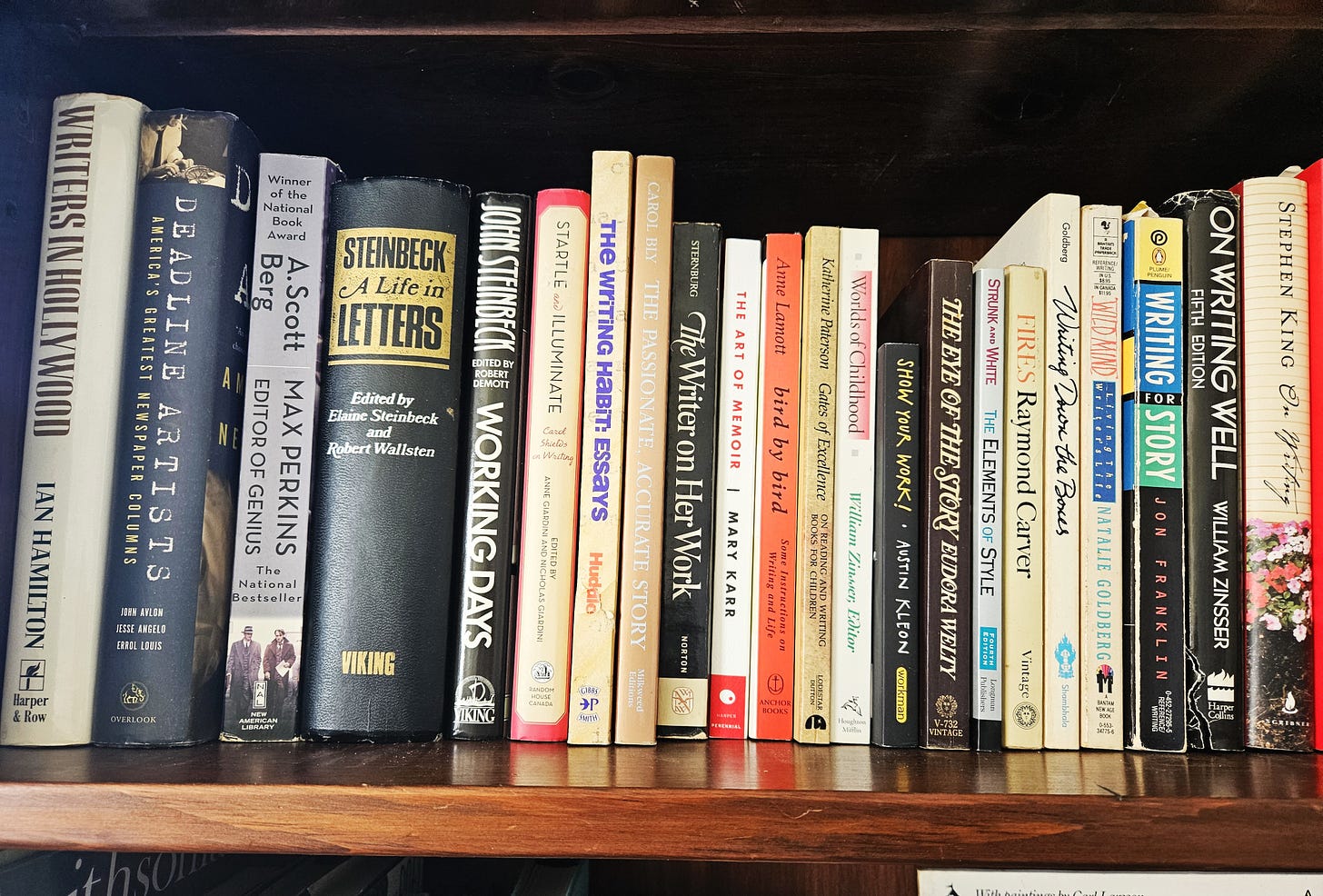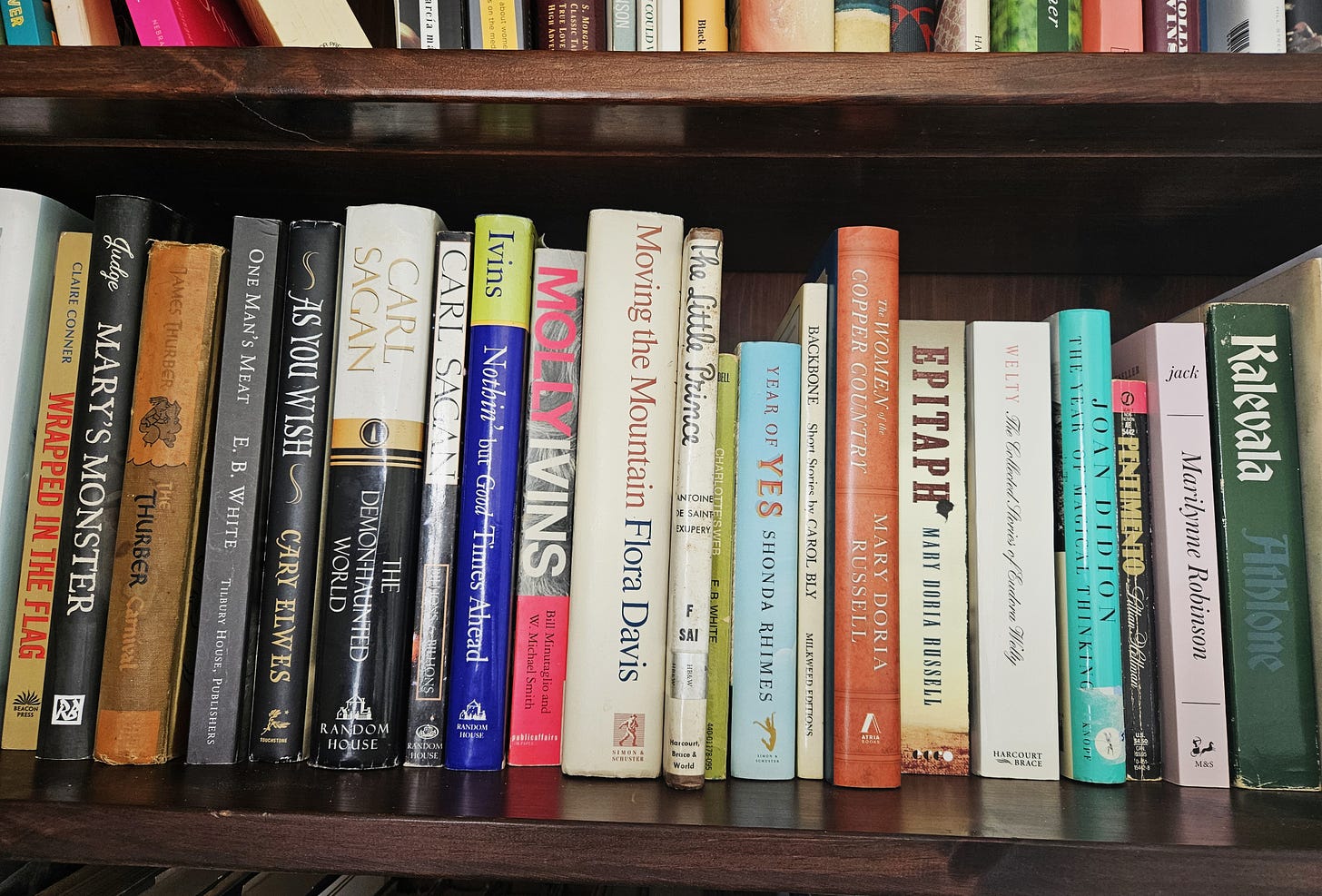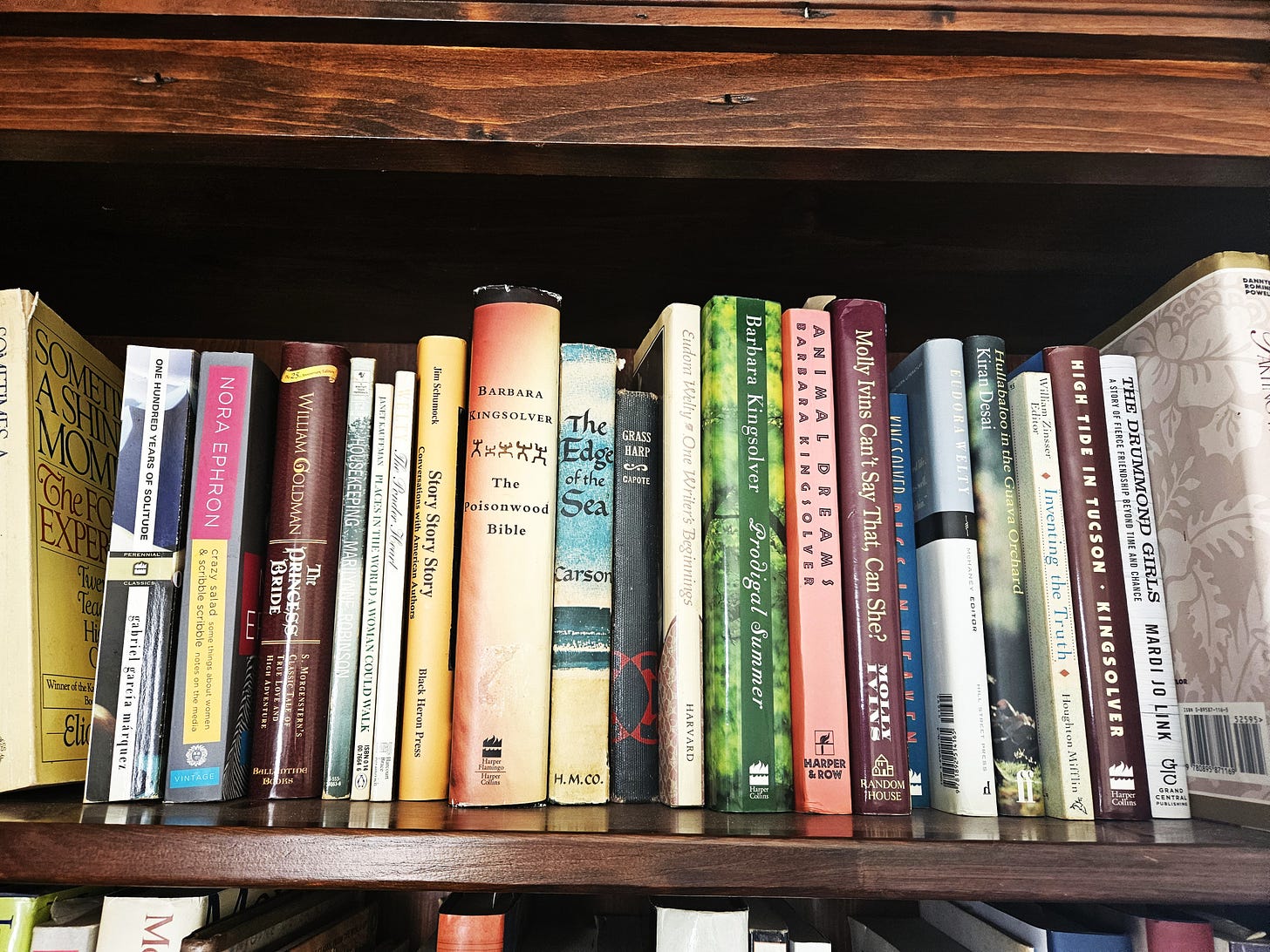What if Writers Just, I Don't Know...Wrote?
Do we need so many lessons from strangers who don't even know us? What if we could figure out another way?

I realize I’m coming at this from the standpoint of someone who started this Substack to help other writers get through the process, but I hope I’ve never claimed to be a teacher. Even when I signed up to do it way back when, in rather casual classroom settings, I made it clear right from the get-go that I wasn’t standing there to teach, but rather to nudge.
My goal, since the people in the room had nothing to lose by being there, other than the paltry sum they paid the school and ultimately me, was to make them comfortable with their own skills and talents, wherever they may lead. Some saw writing as a nice hobby that costs almost nothing to pursue. Others, usually older, wanted to write their life stories for their families. Still others wanted to go pro and make money at it. (Did I discourage that group? No, never. But I did warn them I would be harder on them as an editor. I figured a more merciful approach was to show them how far they still had to go.)
Since I’ve been here at Substack I’ve had a chance to see our quests to become the best of the best—or at least better—from all sides. Some want instant fame or monetary success while others spend an inordinate amount of writing time seeking that one path that will lead them to their goals without curves or obstacles or roadblocks. Others spend way too much time lamenting their failures, as if each failure is a dead end rather than an opportunity to learn from it.
So I’m wondering now, as I’m feeling a bit inundated by all of the ‘how to write good’ noise, what’s so wrong with just writing? The only sure way to learn how to write is to write. Writing as practice. That thing that every single book on writing ultimately gets to. They all tell you to practice.
Put down the book and practice.
Every art, every craft requires practice, practice, practice. It’s the only way to get good at anything. The ONLY way. It helps to have role models who show the way by being good at the craft we’ve chosen, but they can’t teach us. Our work doesn’t get better because we’ve followed lists or guidelines or someone else’s claimed road to success. It gets better with practice.
And, in the case of writers, with reading. If you haven’t been reading those writers who are there to influence and inspire you with their works, you’re missing a key part of reaching your goals. You’re going to have to be inspired, and you’ll only be inspired by reading other writers.
The lessons you’ll need to learn are there, in their choices as storytellers, in their bravery, in their wit, in their charm, in their use of words, in their attitudes. The best of them work to wow you. Did they? Then see it as an opportunity. How did they do it? What jumps out at you? A scene? A passage? A single sentence? Many of them?
In time, after you’ve been reading for instruction as well as story, you’ll begin to understand the mechanics. Ah, I see! Perfect! That fits! You’ll find yourself reading as a fellow writer, if not an editor, and your reading will be the richer for it. It becomes more personal. The two of you, reader and writer, are in it together as savvy, knowing companions and not as strangers.
You get it now. And you love them for it.
Now remember to thank them.

There are no paywalls or closed comments or special gifts, but becoming a paying member means I can keep going here. You can join the paying ranks (Thank you, paying ranks!) through Substack below, or you can support my work by donating any amount at any time at Ko-Fi or at Paypal. Much appreciated!





The best advice I ever got from my writing mentor in college was this: she said “read everything!“ That resonated for me because I had always been a very catholic reader, sampling one genre after another, always looking for a good story and beautiful writing. I also learned that reading clashing styles could often inspire me. Joan Didion along with Ann Tyler. Different prose styles, different voices, wonderful energy. I have consulted how-to books only when I started my mystery series but reading hundreds of mysteries was much more helpful.
As more of a photographer than a writer, although I'm working on the writing part, you have to do it. Take lots of photographs; you can delete images or mistakes in digital photography. Photograph what you like, and do not follow trends. Find someone's work that you admire and get a feel for what you want to pour your time, money, and energy to.